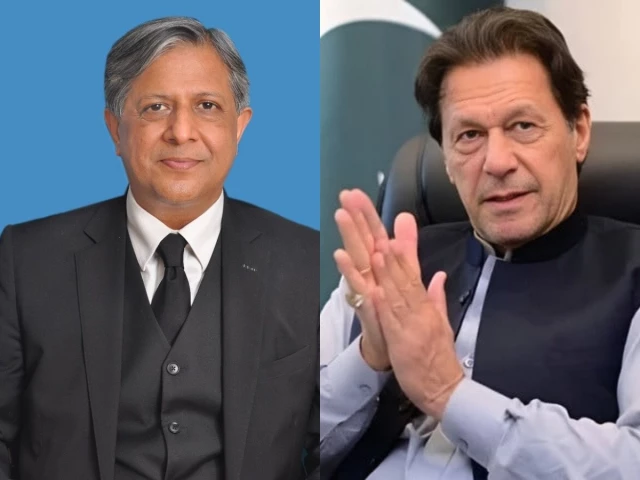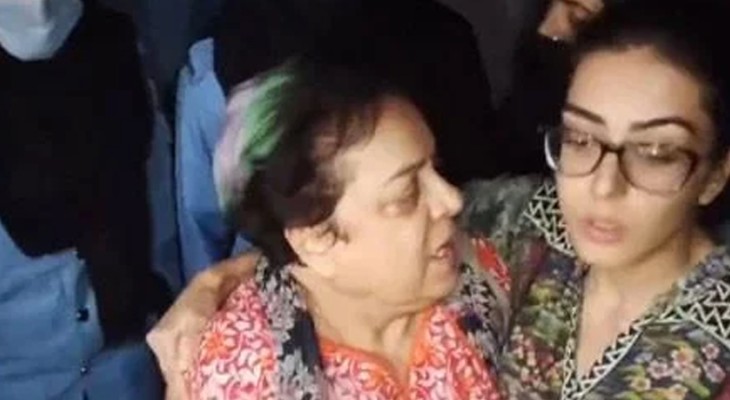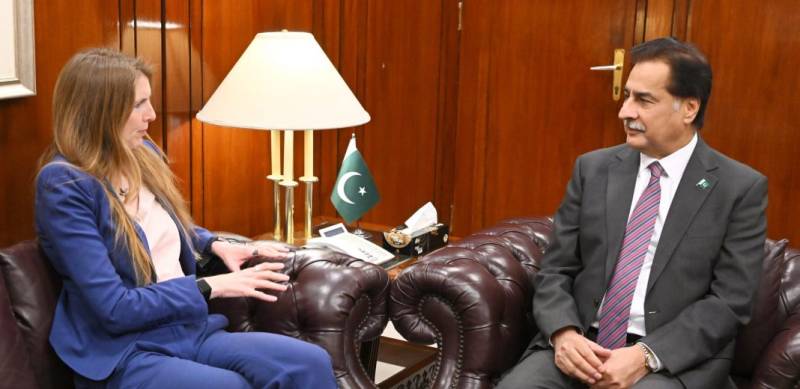- Achakzai seeks PM Shehbaz’s intervention for Imran’s medical examination by ‘trusted’ doctors Dawn
- Imran was taken to PIMS on own request, Azam Nazeer Tarar tells Senate The Express Tribune
- Health facilities being provided to PTI Founder…
Category: 1. Pakistan
-
Achakzai seeks PM Shehbaz’s intervention for Imran’s medical examination by ‘trusted’ doctors – Dawn
-

Court frames charges against Fawad Chaudhry, summons prosecution witnesses
A district and sessions court has formally framed charges against former federal minister Fawad Chaudhry, who denied the allegations leveled against him.
Judicial Magistrate Shaista Kundi presided over the proceedings, during which the court…
Continue Reading
-

Imran was taken to PIMS on own request, Tarar tells Senate
Law minister says injection administered, procedure successful; PTI founder being provided all facilities under law
A combination photo of Federal Law Minister Azam Nazeer Tarar and PTI founder Imran Khan. PHOTO: APP/EXPRESS
…Continue Reading
-
UNICEF statement on reported death and injury of children during attacks in Balochistan, Pakistan – Unicef
- UNICEF statement on reported death and injury of children during attacks in Balochistan, Pakistan Unicef
- How Balochistan attacks threaten Pakistan’s promises to China, Trump Al Jazeera
- China condemns Balochistan attacks, says it will always…
Continue Reading
-

World Bank President Ajay Pal Singh Banga visits ancestral home in Pakistan’s Punjab
As part of his visit to Pakistan, World Bank (WB) President Ajay Pal Singh Banga visited his ancestral home in Khushab district of Punjab province on Tuesday.
Banga reached ‘Gali Sikhan wali’ in Khushab, a town in Punjab, Pakistan, located…
Continue Reading
-

Shireen Mazari moves IHC seeking permission to meet her daughter, son-in-law in jail -INP
Former federal minister Shireen Mazari on Tuesday moved the Islamabad High Court (IHC), seeking urgent judicial intervention to allow her to meet her daughter Imaan Zainab Mazari and son-in-law Hadi Ali Chatha, who are held in…
Continue Reading
-
Pakistan, Libya vow to strengthen defence relationship – RADIO PAKISTAN
- Pakistan, Libya vow to strengthen defence relationship RADIO PAKISTAN
- PM Shehbaz reaffirms Pakistan’s commitment to fostering friendly ties with Libya Dawn
- CDF Munir discusses regional security dynamics with senior Libyan military officials
Continue Reading
-

Kite sales in Lahore reach Rs340 million in just two days
LAHORE: Punjab Minister for Information and Culture Azma Bokhari on Tuesday said that kites worth Rs340 million were sold in Lahore within just two days, as preparations for the Basant festival gather momentum.
Talking to the media outside the…
Continue Reading
-
Istanbul’s Darülaceze inspires Pakistan’s social initiatives – Daily Times
- Istanbul’s Darülaceze inspires Pakistan’s social initiatives Daily Times
- Pakistan Highlights Compassion-Driven Social Care Models at UN Event The Diplomatic Insight
- Pakistan lauds Türkiye’s Darülaceze as model for inclusive long-term…
Continue Reading
-

UK envoy, NA Speaker exchange views on bilateral ties
British High Commissioner Jane Marriott met Speaker of the National Assembly Sardar Ayaz Sadiq at Parliament House on Tuesday to discuss bilateral ties, parliamentary cooperation, and key regional and global issues.
Speaker Sardar Ayaz Sadiq…Continue Reading